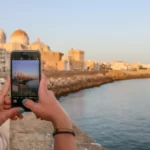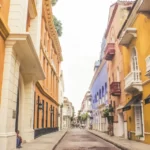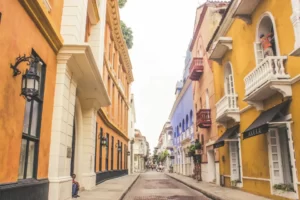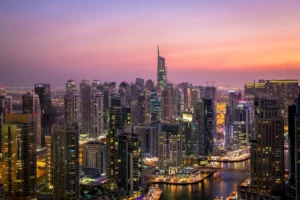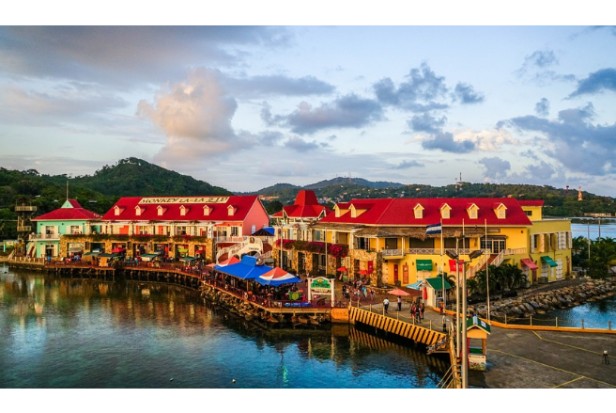
Whether Honduras is safe or not has been thoroughly examined here. Also included are the main traveler safety worries as well as advice on which areas to avoid and how to have a secure trip.
The second-largest nation in Central America, Honduras, has a wealth of tourist destinations. Beaches in the Caribbean, lakes teeming with birds, jungles, tropical rainforests, and the magnificent Bay Islands are just a few of the vast places to discover.
How Safe is Honduras?
Honduras is a beautiful country, but you should be aware that crime there is very, very high.
Petty theft, pickpocketing, and purse snatching are the three types of crime that occur frequently on Honduras’ streets.
This obviously means that you should keep your valuables hidden and refrain from wearing jewelry and other showy items when you’re out and about.
Always be mindful of your surroundings.
The streets of Tegucigalpa and San Pedro Sula are notorious for robberies that take place both during the day and at night. These robberies are frequently committed by two-man motorcycle teams who snatch items from pedestrians.
With crimes like kidnappings, rapes, assaults, and murders, violent crime is a serious problem in Honduras.
Armed robbers frequently target minibuses and vans carrying tourists from the airport to their hotels in San Pedro Sula, which is a problem.
At times, they will even stop the buses in order to rob and physically harm the drivers and passengers.
The highest concern for foreigners may be the murder rate.
The highest murder rate in the world from 2010 to 2015 was recorded in Honduras.
Numerous accidents happen soon after the victims land in Honduras, possibly as a result of criminal sources gathering information about travelers’ whereabouts and accommodations at the airports.
Visitors are strongly discouraged from discussing the specifics of their travel and lodging arrangements in public as a result.
Safety and Security of Honduras
Crime
Honduras suffers from a high rate of crime. The majority of serious crimes do not affect tourists, but assaults on foreigners, including armed robberies and sexual assaults, do occasionally happen. These assaults may occur at any location and at any time of day. While defending themselves, people have been killed and injured. It is advantageous to have a small sum of cash on you to give out in the event of a robbery.
Although there have been a few attacks on tourists, including on ferries to and from the mainland of Honduras, the Bay Islands are generally safer than the mainland of that country. Travel with a reputable guide if you’re visiting Roatán. Avoid side roads in remote areas if you are driving a car or a scooter, especially Palm Beach Road close to Milton Bright. After dark, exercise caution on the beaches in Tela and the towns along the north coast. On beaches after dark, there have been assaults against foreigners.
If you’re traveling by yourself, use caution. Taking a tour or traveling in groups may be safer when visiting remote areas. Never try to hitchhike or accept a ride from a stranger. Always be aware of your surroundings, wherever you are.
There have been reports of violent assaults on buses and cars. Longer journeys might be safer if you use a reputable tour operator. Use hotel taxis or radio taxis for shorter distances.
The Bay Islands (Roatán, Utila, and Guanaja) are among the cities and popular tourist destinations where petty theft is a problem. On Honduras’ mainland, stay off the streets in Tegucigalpa, San Pedro Sula, and other major cities. Be extra cautious in public transportation, at airports, remote beaches, and tourist destinations. If at all possible, keep your valuables hidden in a safe. Jewelry, cameras, tablets, laptops, phones, and other expensive items shouldn’t be displayed.
It is safer to exchange money in hotels or banks rather than at ATMs located in shopping centers. Don’t take out too much cash at once. Attacks on foreigners have occurred after they have withdrawn cash from ATMs. Avoid taking out cash at night.
Scammers may target foreign tourists and residents. Scams can result in substantial financial loss and take many different forms. If you, a family member, or a friend is asked to send money to Honduras, you must be absolutely certain that the request is legitimate and that you have spoken with the person asking for the money.
Local Travel
Avoid traveling at night because the risk of being attacked increases significantly. Routes from Gualaco to San Esteban, from La Esperanza to Gracias, from Olancho via Salama to Saba, and from Limones to La Union are just a few of the roads that have experienced attacks. Criminal activity has also been reported on the remote roads of the Department of Santa Barbara, and carjackings have happened on the roads near Tela, La Ceiba, Trujillo, and El Progreso.
Border Areas
Pay close attention when you are close to the borders with Guatemala, El Salvador, and Nicaragua. After crossing into El Salvador from Honduras, travelers have become the target of armed robbers. It is frequently preferable to cross borders in the morning because they occasionally close in the late afternoon or are unmanned at night.
There are unmarked minefields near and along the Nicaraguan border. In these areas, use caution and stay off of main roads and unmarked paths.
Road Travel
If you are traveling to Honduras for less than three months, you may drive there with your UK driver’s license, but it is advised that you obtain an IDP.
Be certain that your insurance is sufficient. If you are in an accident, dial 911 to call the fire department or the police, and then remain in your car. Regardless of fault, you might be arrested if you cause a serious accident. Obtain legal counsel, and let the British Embassy in Guatemala know. Don’t just rely on the license plate of the car; get all the information about the other driver, who may not be covered by insurance.
Honduras’s driving standards are generally subpar. If you’re not using the main roads, you might need a 4×4. Driving at night is not recommended. Numerous vehicles drive without lights, and roaming animals frequently cause accidents.
Between major cities and tourist destinations, main roads are typically safer to travel on. Keep windows closed and lock the doors of your car. Convoy is advised whenever possible. You should typically wait for the police to show up after any traffic accident.
Public transportation vehicles are frequently poorly maintained, packed to capacity, and operated carelessly. Accidents occur frequently and can be fatal. Public transportation should be avoided. Local gangs have been attacking bus drivers and conductors with weapons more frequently lately, frequently leaving them seriously hurt or even dead. There have been reports of violent muggings on these buses, including rape and assault against foreigners. Private companies typically operate luxury buses, and they typically have better maintenance.
Air Travel
Occasionally, airlines make last-minute changes to their schedules. Prior to your trip, you should confirm with your airline.
Remember that airports can close unexpectedly, so before flying to or from Honduras, check with your airline or travel agency to make sure the airport is open.
Political Situation
Honduras is a country where protests can occur anywhere. Though usually peaceful, these can quickly turn violent and be accompanied by a general breakdown in law and order, including looting. Deaths and injuries have also been reported; tear gas has frequently been used by the police as a response. Roadblocks can happen anywhere at any time and can significantly disrupt travel, even though protests are typically limited to the major cities (particularly Tegucigalpa, San Pedro Sula, and La Ceiba).
Travel arrangements might be affected suddenly. Avoid all forms of protest, and don’t try to get around blockades. You should heed the advice of local authorities, your travel agency or airline, keep an eye on local and social media, or get in touch with the British Embassy in Guatemala for local updates.
Foreigners are not allowed to engage in political activity in Honduras, according to the constitution. You risk being arrested and/or deported if you participate in demonstrations.
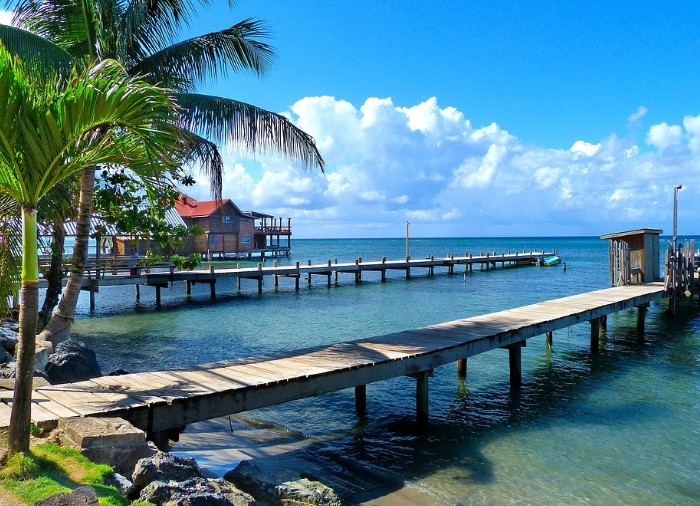
Warnings & Dangers in Honduras
Overall Risk: Medium
Though it has many risks, Honduras is generally safe to travel to. You should be aware that the majority of thefts and pickpocketing incidents take place in tourist hotspots, on public transportation, and on some streets, and that there is violent crime on the streets as well.
TRANSPORT & TAXIS RISK: HIGH
Honduras’ public transportation is extremely dangerous. In some cases, buses are stopped while robbers are attacking or obstructing passengers. Robberies have occurred on public transportation. You could be abducted and robbed if you ride in an unlicensed taxi, so be cautious.
Pickpockets Risk: High
Being vigilant and keeping your bags close to you will help prevent pickpocketing and bag snatching, which are frequent concerns on Honduras’ streets. A better option would be to leave your priceless possessions in your lodging rather than flash them in public.
Natural Disasters Risk: Medium
In terms of natural disasters, Honduras experiences a wet season from May to November that poses a number of dangerous threats, including hurricanes, landslides, mudslides, and flooding. In addition, Honduras is situated in an active seismic zone, so tremors are to be expected.
Mugging Risk: High
Honduras also has a problem with muggers. In such a case, immediately surrender all of your belongings and show no resistance. Minibuses and vans carrying tourists from the airport to their hotels in Sand Pedro Sula are frequently targeted by armed bandits. Keep away from areas that are dark and empty.
Terrorism Risk: Low
Although there is a low likelihood of a terrorist attack in Honduras, you should never take any chances and be aware of your surroundings at all times.
Scams Risk: High
Being a tourist increases your risk of being scammed, just like it does in almost every other nation. Always double-check your work, and agree on everything in advance. Taxi drivers may try to mislead you about the cost of the ride in an effort to get you to pay more.
Women Travelers Risk: Medium
Many female travelers have gone to Honduras alone without encountering any issues. However, this nation isn’t the safest for female travelers alone, especially at night, so you should always take precautions and stay away from deserted, dark areas. Be extremely cautious whenever you speak to men, including hotel staff.
How Does Honduras Compare?
Visas – Most nations can enter Honduras without a visa for stays up to 30 days. A minimum of six months should pass after the date of your arrival for your passport to remain valid. Visit www.doyouneedvisa.com to find out if you need a visa based on your nationality and the country you want to visit if you are unsure of your visa status.
Currency – The official unit of currency in Honduras is the lempira. There are ATMs located throughout all larger towns and cities, but you should exercise caution when using them on public streets. Typically, tourist-related businesses accept credit cards.
Weather – The tropical climate of Honduras is characterized by milder, cooler conditions in the mountains, where the temperature typically ranges from 16 to 20 degrees Celsius. The north coast experiences year-round rain and extreme heat, despite feeling milder due to the offshore breezes that lower the temperatures.
Airports – The primary and busiest airport in Honduras is Ramon Villeda Morales International Airport, also known as La Mesa International Airport. It is situated 11 kilometers east of San Pedro Sula.
Travel Insurance – When traveling to Honduras, we advise getting travel insurance just like anywhere else because it will cover not only medical issues but also loss of valuables and theft.
Things to Consider
People still visit Honduras despite all the safety worries. Here are some suggestions for using when visiting this nation.
- When lost or scared, act confident. The last thing you want during your visit is to stand out and become a target for crime.
- Carry a fake wallet with some cash in it. You can give that out in case you get robbed.
- Keep your fancy phone at home. Bring a phone that you don’t mind losing from the past.
- Try not to draw attention. Especially if you’re a woman, dress casually like the locals.
- carry copies of your documents. You don’t want to encounter delays as a result of your travel documents being stolen.
- Don’t stroll along beaches at night. Additionally, stay away from camping at night because a campfire makes it simpler to be discovered.
Conclusion
Honduras isn’t completely safe, but you can go there with a group on an organized tour. You might encounter security difficulties if you’re traveling alone. Even though getting here could be dangerous, it’s not impossible.
Comparable to Tegucigalpa and San Pedro Pula in terms of safety are the Bay Islands, Utila Islands, La Ceiba on the northern coast, and Copan. Petty theft and violent robberies are the most frequent safety worries because they can occur at any time.
Keep a low profile by not being flashy and stick to safe neighborhoods. Avoid traveling alone or at night. By doing this, you reduce the likelihood of robbery or assault. Safe travels!
Frequently Asked Questions
Is It Safe to Visit Honduras in 2022?
In 2022, traveling to Honduras is not entirely safe. If you avoid dangerous areas, are aware of your surroundings, and keep a low profile, your stay might be incident-free.
Why is Honduras So Dangerous?
Why is Honduras so perilous? Violent crime is at its peak in Honduras. The main causes of the high crime rate are poverty, violence, and insecurity. On top of that, there are a lot of gang wars.
Honduras Travel Restrictions 2022
All arrivals to Honduras will be required to present negative PCR test results, no older than 72 hours. Arrivals who have received vaccinations are exempt.
Is Roatan, Honduras Safe
In general, Roatan is a safe island, however, theft can be an issue, as it is in many tourist areas. But you should stay away from some areas of the island because they’re not thought to be that secure. It’s crucial for your safety to know where you are and how close you are to your hotel.
Is Honduras Safer Than Mexico
All in all, traveling in Honduras or Mexico will be fun and beautiful but Mexico is safer, has more tourist sites, and has better food and infrastructure for long-term stays. It triumphs in this competition due to all those factors.
Can I Travel to Honduras Right Now
Honduras’ borders are open for arrivals, with some health protocols in place. Quarantine may be required for up to 14 days for travelers who visited nations where the Omicron variant had confirmed cases within the 14 days prior to their arrival. Arrivals must fill out a pre-arrival travel form.
What Parts of Honduras Are Safe?
In Honduras, Bay Islands is the most secure location. The Utila Islands, la Ceiba on the northern coast, and Copan are some additional safe zones. A guided tour will increase your sense of security.
Do Tourists Get Kidnapped in Honduras?
There have been cases where gangs have kidnapped tourists and forced them to pay ransom to their family members.
Is Honduras Worth Visiting?
A group trip to Honduras is worthwhile. If you stay in areas with few crimes, you should find it worthwhile to visit the Caribbean beaches, bird-filled lakes, jungles, tropical rainforests, and the magnificent Bay Islands.
Is Tegucigalpa Safe?
San Pedro Pula and Tegucigalpa are two of the most criminalized areas in the country. Avoid these two locations at all costs unless you absolutely must be there for another reason because they aren’t safe.


